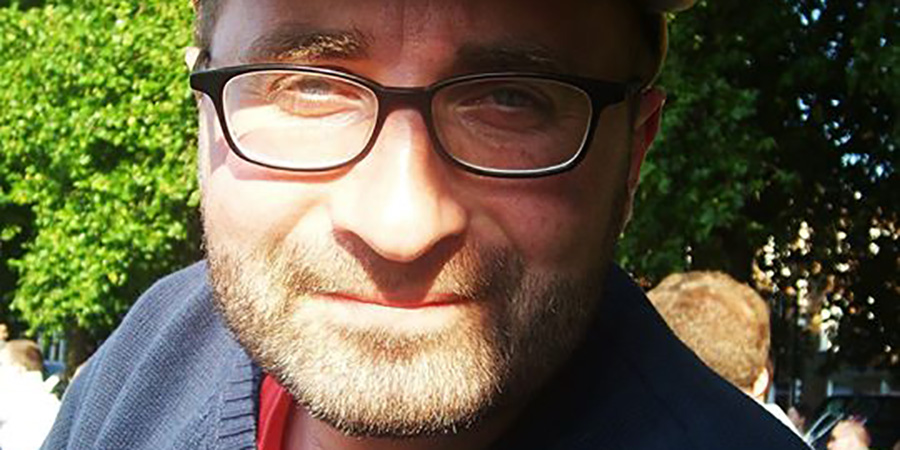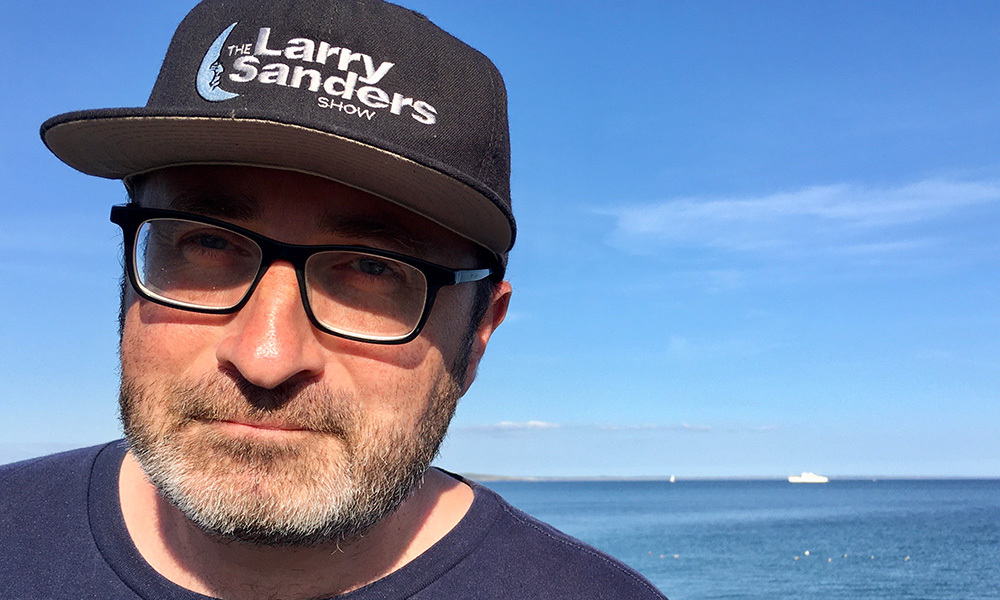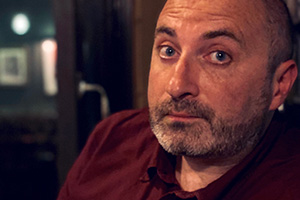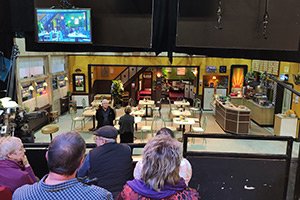Dos and Don'ts for New Comedy Writers

With the comedy industry needing new, diverse and regional writing talent, top comedy producer and recent BBC Studios Comedy Exec Simon Nicholls has devised a new Master's course in Comedy Writing for Falmouth University. It's an online MA, so you can be based anywhere whilst you study.
Across the part-time MA, Simon teaches everything he's learnt from being an award-winning comedy producer for 20 years, working closely with and learning from great writers and producers. The course includes writing tips and career guidance from the very best in the industry, including the likes of Emmy and Bafta-winning comedy writer Simon Blackwell, Bafta-winning Mitchell & Webb comedy producer Gareth Edwards and former Head of BBC and Sky Comedy Commissioning, Lucy Lumsden. Dawn French - the chancellor of Falmouth University - is backing the course.
As well as teaching in-depth comedy writing skills and building a portfolio of writing to best showcase your talent, the course teaches you the street smarts of how to best navigate the comedy industry: how to grab opportunities, how to approach producers and agents and how to make your work stand out from the crowd.
As a little taster for the MA, here are some suggested Dos and Don'ts for new comedy writers, from Simon...
DO thoroughly plan your sitcom premise, characters and script in advance. It means your half hour script won't take you 18 months to write.
DON'T start writing without a thorough story plan. The logic is you wouldn't build a house without a plan: who wants to open a front door and walk into a fridge?
Write a comedy script without a plan and you'll end up with the script equivalent of the leaning tower of Pisa. And no-one wants to see that filmed as an audience sitcom (although the leaning tower of Pisa pulls in 5 million viewers a year; something Sky Atlantic can only dream of. Ahem.)

DO write and send out a full pilot script to producers and agents.
DON'T send out a treatment for your idea with no script. You want to show producers and agents your comic voice and writing skills: how you handle dialogue and plot. There's no better way of doing this than with a full script.
SUPER BONUS DON'T: on the subject of writing your pilot script, you don't have to spend 18 months writing the whole series of your sitcom. Producers and agents only need to see one script to get a sense of your voice and idea. What you're trying to do with this one script is start a conversation with a producer or agent. You don't need 6 completed scripts to start a conversation.

DO always have lots of bananas on hand. Writing comedy is tiring work and bananas are fantastic for energy. I learnt this during my time working with Armando Iannucci, who always keeps a healthy supply of bananas on set.
DON'T buy lots of Yubari Melons. A pair of these Japanese melons auctioned for $26000 in 2014. Clearly a better use of your money is to sign up for Falmouth Flexible's online MA in Comedy Writing. Ahem.
(In relation to the picture, Simon says: "Clearly these are lemons and not bananas, so please use your imagination.")
DO write a pilot episode where your show's main premise is evident from the very beginning. So if your set-up is a sitcom about a taxi-driver, let your main character be a taxi-driver from the off and show that in action.
DON'T write a pilot episode full of set-up where in the final scene, your main character becomes a taxi driver. Producers and agents want to see what a typical episode of your sitcom looks like: they're not after the origin story of your character. Unless your sitcom is called Batman Begins and you're Christopher Nolan.
If you must have a bit of origin story in Episode 1, write Episode 2 as your pilot script instead: where your main character is already up and running and the reader can clearly see what a typical episode of your show is.
DO work out your show's point of view; what it's saying about the world today.
The best comedies have a clear point of view and a clear human story at their heart. The late great comedian and writer Garry Shandling said that his own The Larry Sanders Show was a series about love and how the need for fame and fortune screws that up. On face value it was a satire about the making of a TV chat show, but there was a clear human angle at the show's heart. When writers pitched Garry ideas for the show, they would say, "It's an episode where Hank takes over as host one week, because Larry is ill." Garry would reply, "Yes, but what's that episode really about? What's the human story? What does it mean to Hank?" So always ask yourself, what's the emotional story here? Have a clear sense of what your show is 'really' about.
DON'T write something generic that you don't care about. If you cynically think the BBC wants a sitcom about lawnmower salesmen, and you have no interest in lawnmower sales, then don't write it. You want to be emotionally invested and excited by your idea. If you find stamp collecting funny, write a sitcom about that. Your job as a writer is to get the audience as excited about the topic of your show as you are.

DO focus on making your main characters dialogue and manner as distinctive as possible. If you're finding this difficult to do, imagine which actor or actress you'd cast in the role and write the character's dialogue with the actor's voice in your head.
DON'T give up with making your main characters distinctive! One way of working this out is imagine them together in a room talking about one subject: for example, Alan Titchmarsh. What does each character think about Alan Titchmarsh? Do they all know who Alan Titchmarsh is? If two of your characters share the same opinion on one subject, play around with them so they don't.
DO make the script the best it can be. Press yourself to come up with 10 ideas for a character, the starting point for a story or for a funny line of dialogue. Never settle on your first idea. By making yourself come up with lots of ideas, you'll push your brain to places it's not consciously aware of and you'll surprise yourself with a funny thing. If the 8th idea you have surprises you and really tickles you, go with that.
DON'T beat yourself up too much. Work hard but remember it's only a script. You're not trying to come up with a cure for Covid-19. Writing comedy isn't easy and can be lonely. But it should also be fun at times. If you're going to be miserable, there are better paid miserable jobs: like Chief Financial Officer of a company that makes bath plugs.

DO think of different ways you can get your writing seen by producers or agents. Right now, as we await a vaccine for Covid 19 (from all those people not studying Falmouth Flexible's online MA in Comedy Writing), why not do a Zoom readthrough of your script and invite producers, commissioners, agents to watch. Or film a scene if you can. Doing stuff like this doesn't have to be impossible: corral some friends to help you. Remember, it doesn't have to be perfect and producers, agents and commissioners love being able to watch new stuff.
DON'T just write one thing. If you're a new comedy writer, have a go at writing a location comedy, an audience sitcom, sketches. Have a portfolio of different types and tones of writing. This will help you figure out what you enjoy writing the most. And it's good to have a varied body of work to share with agents and producers.
DO be pro-active and persistent, but remember the producers and agents you approach are busy. Yes, it's an acknowledged part of the game to chase people up when you send them something, but...
DON'T badger producers and agents without giving them time to read something. Don't email a script today and then follow up tomorrow asking why they haven't got back to you yet. Leave it at least three weeks when you email something. It's a tricky fine-line: be persistent but don't be an irritating prat.
DO try writing for different mediums. Have a go at writing a TV comedy. Write for online. Write for radio. Don't say, "I don't listen to radio comedy, so I won't bother." If you do that you're closing yourself off to potential income. If you don't listen to radio comedy, then your challenge is to write something you'd want to hear. Radio actively employs new comedy writers, while TV is harder to break into. Don't be a closed shop. Give everything a go!
DON'T be a chump! Sign up to Falmouth Flexible's online Master's in Comedy Writing, honing your comedy writing skills and gaining the street smarts to make a career out of comedy writing. It's created and led by award-winning comedy producer, Simon Nicholls (that's me, describing myself in the 3rd person).
Find out more about the Falmouth Flexible Online Masters Degree in Comedy Writing.
This article is provided for free as part of BCG Pro.
Subscribe now for exclusive features, insight, learning materials, opportunities and other tools for the British comedy industry.




